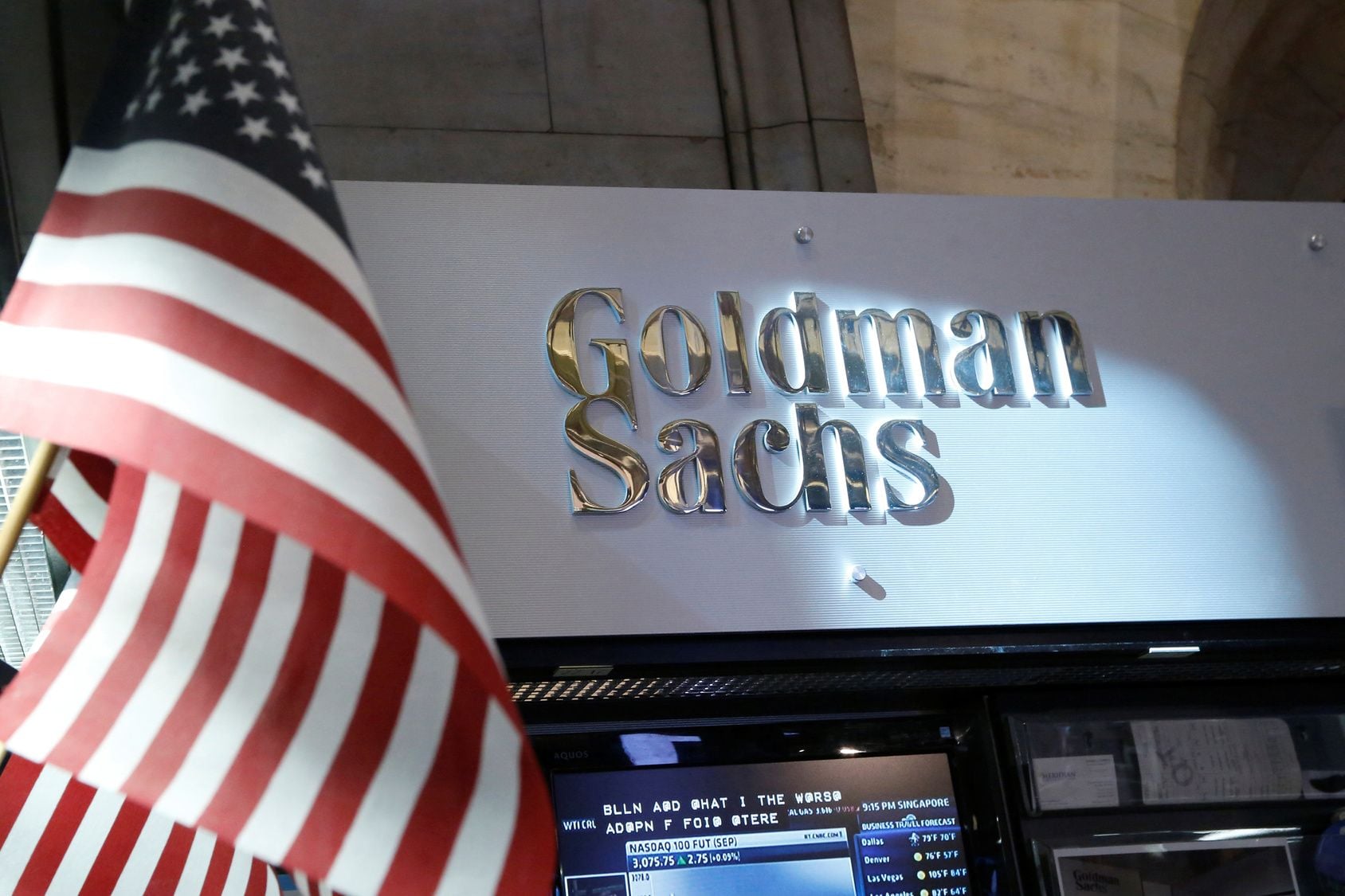Cryptocurrency Backed as a New Asset Class by Goldman Sachs
- Written by: Gary Howes
-

FILE PHOTO - A view of the Goldman Sachs stall on the floor of the New York Stock Exchange. REUTERS/Brendan McDermid/File Photo
Wall Street investment bank Goldman Sachs has canvassed some of the world's most prominent investors - as well as their own analysts - to assess the current status of cryptocurrencies as a genuine investment proposition.
The initiative comes amidst heightened volatility for the asset class which has resulted in investors refocusing on the pros and cons of what is a relative newcomer in their portfolios.
"Crypto is undoubtedly Top of Mind," says Allison Nathan of Goldman Sachs Research, in the latest release from her "Top of Mind" research series.
Nathan spoke to some of the world's leading investors and some of Goldman Sachs' own internal team to gather their assessments on cryptocurrencies as an investment asset.
Included were Michael Sonnenshein, CEO at Grayscale Investments, who said he is "yet to find somebody who has really done their homework on crypto assets that isn’t truly amazed by the potential for the asset class".
“We’ve now hit a critical mass of institutional engagement in crypto. Everyone from the major banks to PayPal and Square is getting more involved, which is a loud and clear signal that crypto is now an official asset," said Michael Novogratz, CEO of Galaxy Investment Partners.
However, Nouriel Roubini, Chairman of Roubini Macro Associates LLC says Bitcoin and other cryptocurrencies aren’t assets. Assets have some cash flow or utility that can be used to determine their fundamental value... Bitcoin and other cryptocurrencies have no income or utility."
These assessments come amidst heightened volatility for cryptocurrencies that saw sharp declines in the week commencing May 17, driven in part by a crackdown on crypto miners in China.
Backers of the asset said the decline was a healthy correction, but critics said the slump highlights just how unsuitable this volatile asset is for serious investors.
The Twitter account of Elon Musk is another key driver of recent volatility, with Musk contributing to a decline in digital currencies after he announced on May 13 his firm Tesla would no longer accept Bitcoin for payment owing to the huge environmental impact of Bitcoin mining.
But fast-forward to May 25 and Musk has triggered a fresh bout of buying of Bitcoin and other cryptocurrencies after he said he had spoken with North American Bitcoin miners and said they have committed to publish current & planned renewable usage in an effort to make the industry 'greener'.
According to data from trusted BTC sites the price of Bitcoin has since established a base 24K-28K range, with bulls hoping this will provide the springboard to a more sustained recovery.
"With cryptocurrency prices remaining extremely volatile on news about regulatory crackdowns, environmental concerns and heightened tax scrutiny even as interest in crypto assets from credible investors has been rising," says Nathan.
Zach Pandl, GS Co-Head of Global FX, Rates, and EM Strategy, says bitcoin’s potential for widespread social adoption rests with its strong brand identify as well as other properties, such as:
- its security
- Its privacy
- Its transferability, and
- the fact that it’s digital makes it a plausible store of value for future generations.
Pandl says he believes that institutional investors today should treat Bitcoin as a macro asset, akin to gold.
Goldman Sachs commodity analyst Mikhail Sprogis and Jeff Currie, Global Head of Commodities Research say that cryptocurrencies can act as stores of value, but only if they have other real world uses that create value and temper price volatility.
The analysts say this best positions those cryptocurrencies whose blockchains offer the greatest potential for such uses, like Ethereum, to become the dominant digital store of value.
Currie adds that cryptocurrencies are a new class of asset that derive their value from the information being verified and the size and growth of their networks, but that legal challenges to their future growth loom large due to their decentralised and anonymous nature.
Christian Mueller-Glissmann, Senior Multi-Asset Strategist at Goldman Sachs says cryptocurrencies are proving to be an asset that adds value to a portfolio, if the balancing is done tight.
He finds the asset has to offer either an attractive risk/reward or low correlations with other macro assets, and preferably both.
He finds that a small allocation to bitcoin in a standard US 60/40 portfolio since 2014 would’ve led to strong outperformance, owing both to higher risk-adjusted returns for bitcoin compared to the S&P 500 and US 10y bonds, as well as diversification benefits from relatively low correlations between Bitcoin and other assets.
But with this outperformance largely owing to only a handful of idiosyncratic Bitcoin rallies, he concludes that Bitcoin’s short and volatile history makes it too soon to conclude how much value it adds to a balanced portfolio.
Goldman Sachs have nevertheless indicated they are reengaging in the asset owing to client demand, suggesting its adoption in main-stream investment channels will only likely increase.




